Step-by-step process of carving a skull from old books
Categories: Design and Architecture
By Pictolic https://pictolic.com/article/step-by-step-process-of-carving-a-skull-from-old-books.htmlCanadian artist and sculptor Maskull Lasserre has a special passion for human (and not only) anatomy. In his works, he often refers to the theme of the internal structure of the body, while choosing very unusual objects for carving - wooden frames, furniture, and the like.
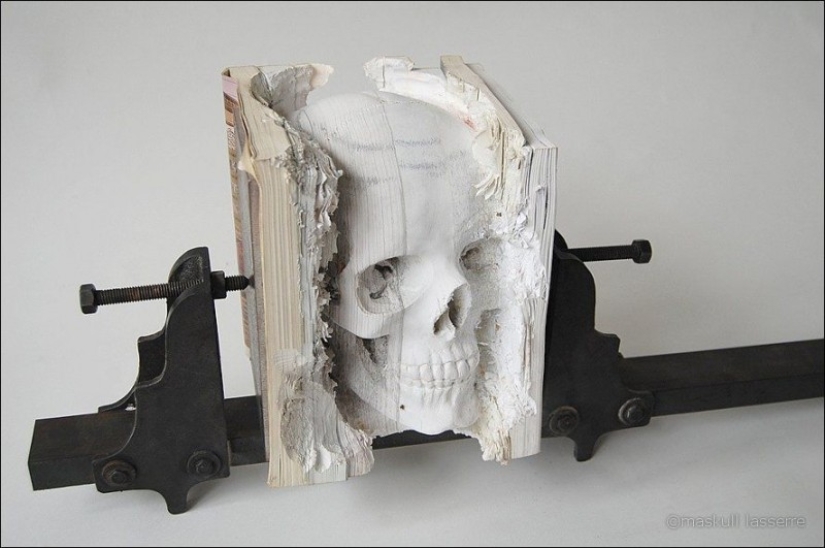
This time he chose several outdated computer textbooks and manuals as his material. Clamping the books in a vise, he cut out a three-dimensional skull from a stack of paper. Next, you will see a step-by-step process, as a result of which a paper sculpture will be born.
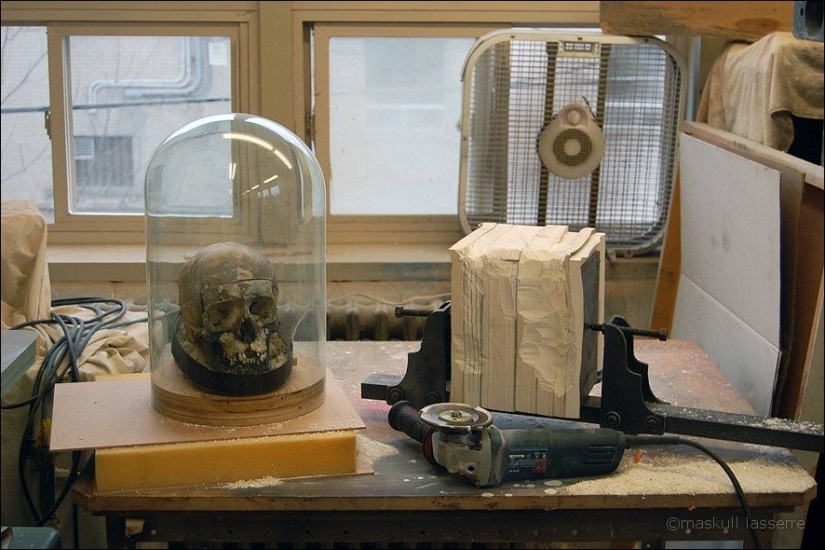
The beginning of the workflow is on the table a model, an old human skull, and a blank from a stack of books.
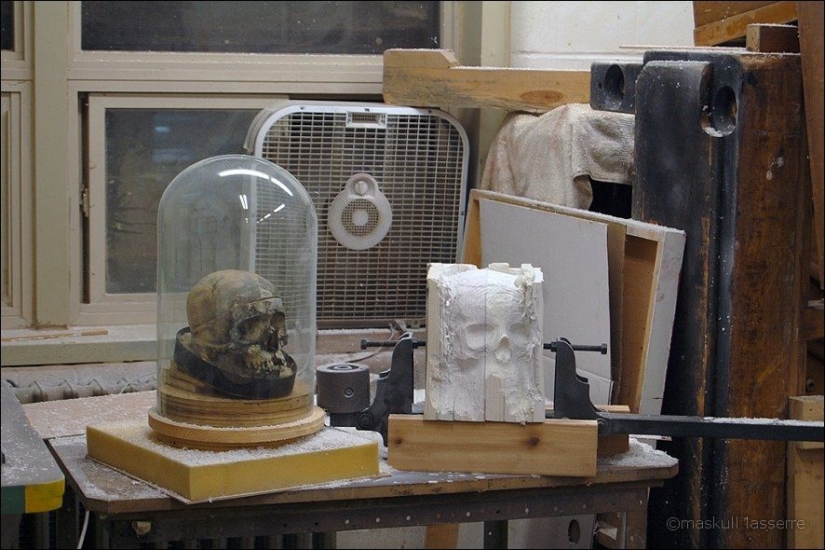
The first strokes - and the future sculpture begins to look through the thickness of the paper.
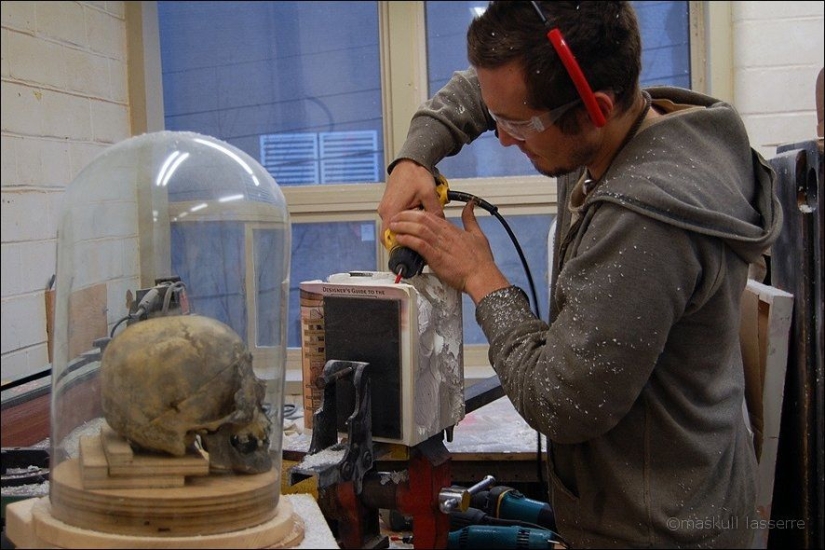
The main tool of the artist was a small drill with a drill bit 2 mm in diameter.
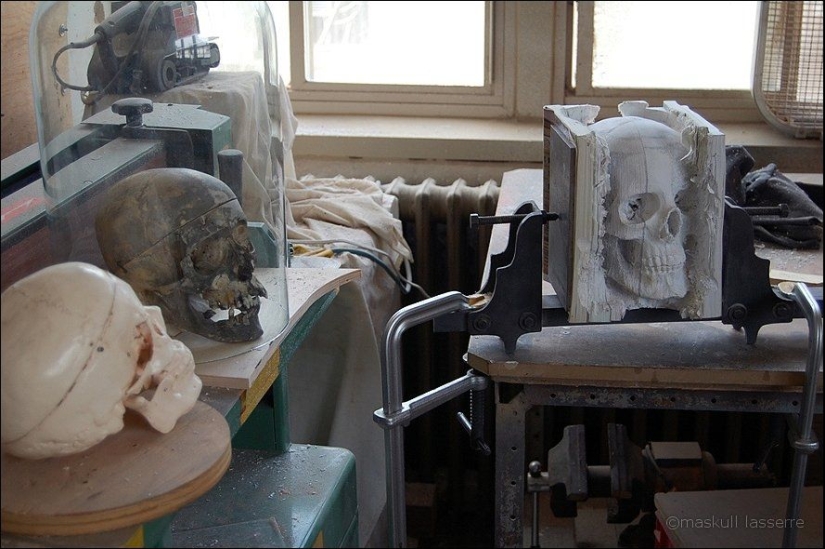
The skull is almost ready - it remains only to "polish".
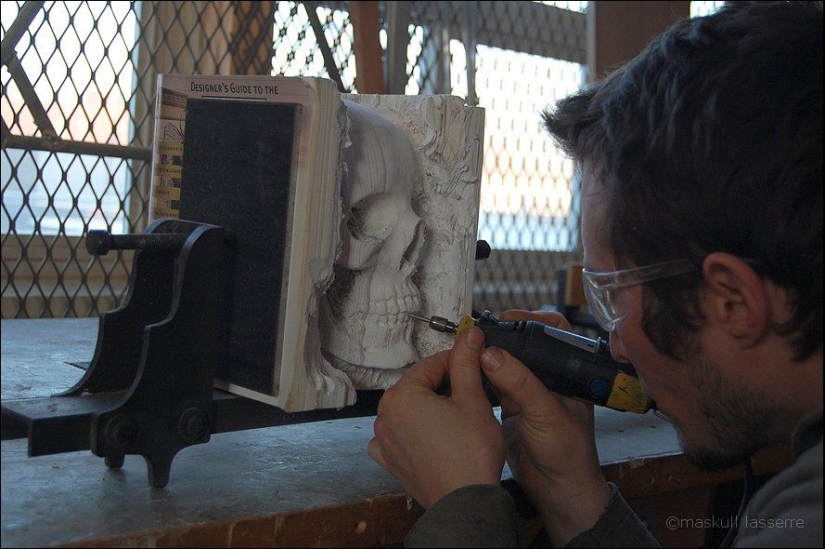
On the one hand, the appearance of the skull from the book seems unexpected, on the other hand, the author recreates it so accurately that sometimes it seems that these sculptures have already been hidden somewhere in the thickness of the pages, invisible to the common man.
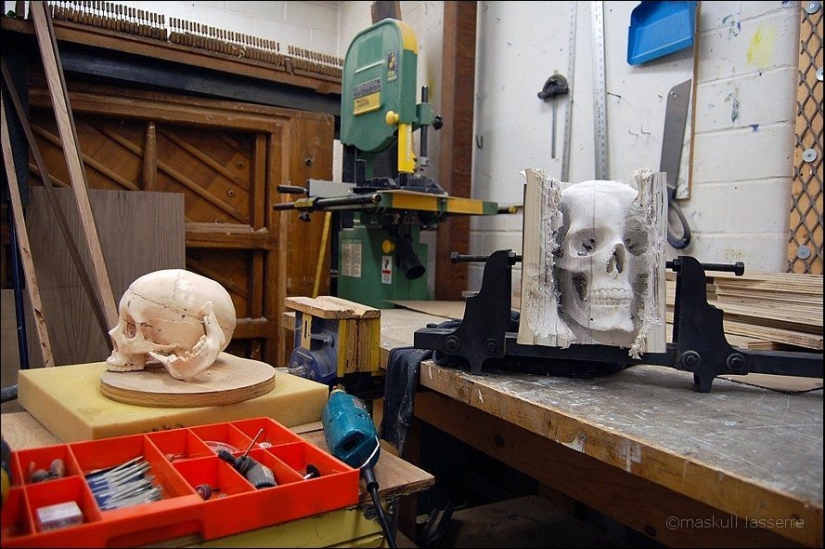
And only an artist with his special vision can reveal the hidden.
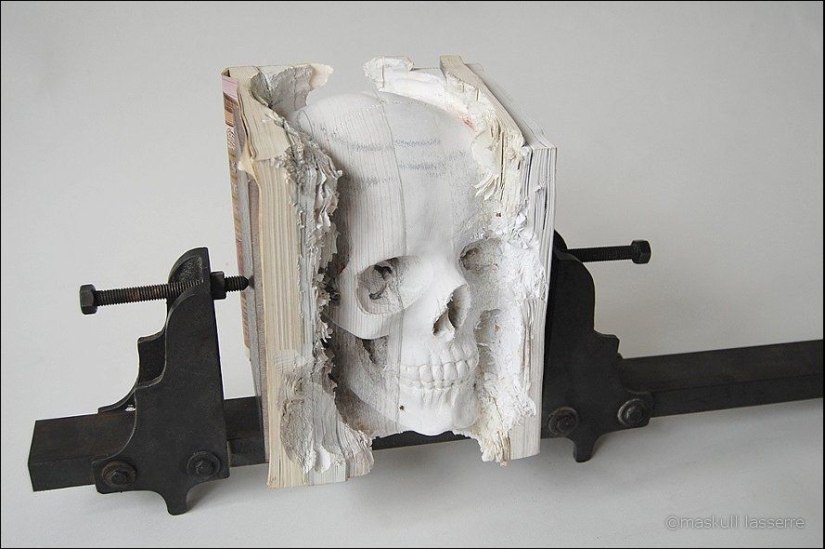
It was not without reason that the artist chose books on computer topics as the material - such books quickly lose their relevance.

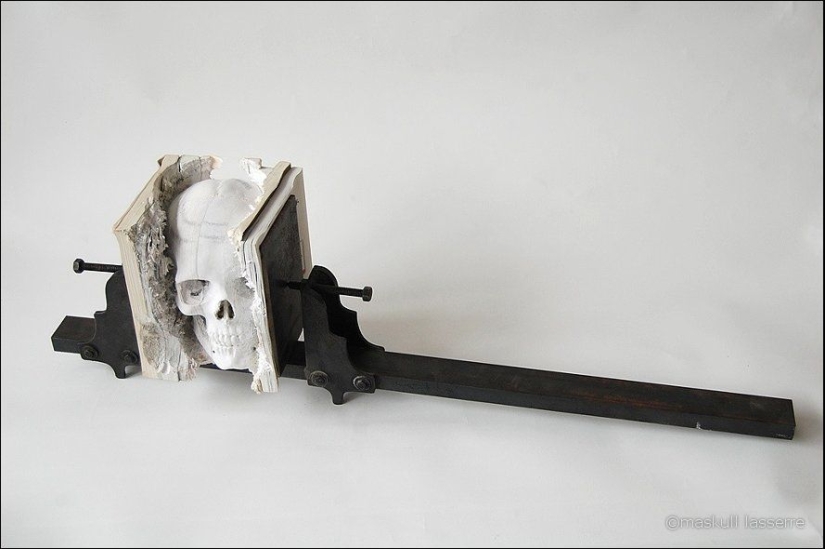
Maskull Lasser was born in Canada in 1978 and spent his early childhood in South Africa.
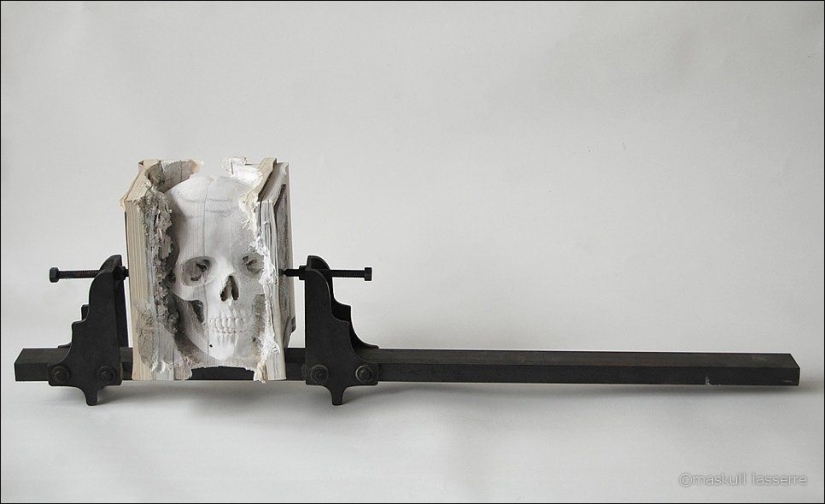
He studied fine arts and philosophy at Mount Allison University and also trained as a sculptor at Concordia University.
Recent articles

It's high time to admit that this whole hipster idea has gone too far. The concept has become so popular that even restaurants have ...

There is a perception that people only use 10% of their brain potential. But the heroes of our review, apparently, found a way to ...

New Year's is a time to surprise and delight loved ones not only with gifts but also with a unique presentation of the holiday ...